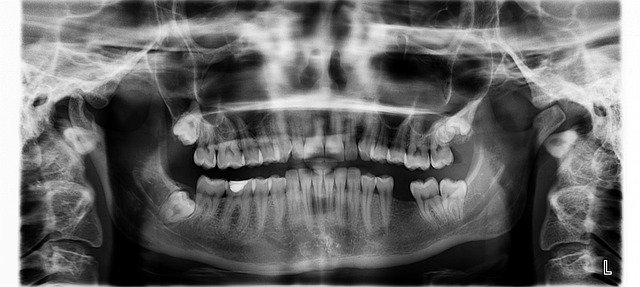Dental Implant Costs and Options in Australia for 2025: Comprehensive Guide and Alternatives
Dental implant costs in Australia for 2025 vary widely based on procedure type, materials, and patient needs. This guide explores pricing, available options, alternatives like dentures, financing plans, and where to find affordable or reduced-cost treatments.

Understanding the Cost Structure of Dental Implants
Dental implant costs in Australia follow a multi-component structure that explains their significant investment. The total expense typically encompasses several elements: the surgical implant placement (titanium post inserted into the jawbone), the abutment (connector piece), and the final crown (visible tooth replacement). Additional procedures such as bone grafting, sinus lifts, or extractions may be necessary depending on your oral health, each adding to the overall cost.
Australian dental implant pricing also varies based on the implant material quality, the dentist’s expertise and specialization, and the clinic’s location. Metropolitan areas like Sydney and Melbourne generally command higher fees than regional practices. Understanding this breakdown helps explain why a single dental implant rarely falls under $3,000, while full-mouth restorations can reach $30,000 or more.
Price Ranges for Dental Implant Options in Australia 2025
The Australian dental implant market offers several treatment approaches with varying price points. Standard single-tooth implants typically range from $3,500 to $6,500 per tooth in 2025 projections. This includes the implant, abutment, and crown components. For patients missing multiple teeth, implant-supported bridges offer a more economical option per tooth, with three-tooth bridges typically ranging from $10,000 to $15,000.
Full-arch solutions present the highest initial investment but potentially the best long-term value. All-on-4 or All-on-6 treatments, where four to six implants support an entire arch of prosthetic teeth, generally range from $20,000 to $30,000 per arch. Premium options using zirconia prosthetics instead of acrylic can push costs toward the upper end of this range.
| Treatment Type | Average Cost Range (2025 Projection) | What’s Included |
|---|---|---|
| Single Tooth Implant | $3,500 - $6,500 | Implant post, abutment, crown |
| Implant-Supported Bridge (3 teeth) | $10,000 - $15,000 | 2 implant posts, abutments, 3-unit bridge |
| All-on-4/All-on-6 (per arch) | $20,000 - $30,000 | 4-6 implants, abutments, full-arch prosthesis |
| Mini Implants | $1,000 - $3,000 per implant | Smaller diameter implant and restoration |
Prices, rates, or cost estimates mentioned in this article are based on the latest available information but may change over time. Independent research is advised before making financial decisions.
Dental Implant Alternatives and Their Costs
Not everyone is a candidate for traditional dental implants, and budget constraints may necessitate exploring alternatives. Traditional removable dentures remain the most affordable option, ranging from $1,200 to $2,800 per arch for standard acrylic dentures. Premium options with better materials and customization can reach $5,000 per arch but still cost significantly less than implant solutions.
Fixed dental bridges offer another alternative, anchoring to adjacent natural teeth rather than implants. A typical three-unit bridge costs between $3,000 and $5,000, making it less expensive than implant options but requiring the alteration of healthy adjacent teeth. For those still interested in implant technology but with budget limitations, mini dental implants present a middle-ground option. These smaller-diameter implants typically cost 30-50% less than standard implants but have limitations regarding placement locations and longevity.
Snap-on dentures, which combine removable prosthetics with a limited number of implants for stability, offer another compromise at approximately $8,000 to $12,000 per arch—substantially less than fixed implant solutions while providing better stability than traditional dentures.
Considerations for Treatment Eligibility and Planning
Not everyone qualifies immediately for dental implant treatment. Several factors determine eligibility, including bone density and volume, gum health, overall medical history, and lifestyle habits. Patients with insufficient jawbone may require preliminary bone grafting procedures, adding $1,500 to $3,000 per site to the total cost and extending treatment timelines by 3-6 months.
Systemic conditions like uncontrolled diabetes, certain autoimmune disorders, and ongoing cancer treatments may complicate or contraindicate implant therapy. Additionally, heavy smoking significantly impacts success rates and may disqualify patients or require cessation programs before treatment. A comprehensive assessment by both a dental specialist and your primary healthcare provider ensures proper treatment planning and realistic expectations.
The complete implant journey typically spans several months, with healing periods between surgical stages. Patients should plan for 3-9 months of total treatment time depending on their specific case complexity and whether preparatory procedures are needed.
Potential Benefits and Considerations for Dental Implants
Dental implants offer distinct advantages over traditional tooth replacement methods. Their integration with jawbone provides unmatched stability, allowing for normal eating, speaking, and smiling without concerns about slippage. This osseointegration also stimulates bone preservation, preventing the facial collapse and premature aging often associated with tooth loss and conventional dentures.
With proper maintenance, dental implants demonstrate impressive longevity—many last 15-25 years or even a lifetime, compared to the 5-10 year replacement cycle of traditional bridges and dentures. This durability potentially offsets the higher initial investment through reduced replacement costs over decades.
However, implants require meticulous oral hygiene and regular professional maintenance to ensure their longevity. While rare, complications can occur, including implant failure (3-5% risk), infection, nerve damage, or sinus issues. Patients should weigh these considerations against the clear functional, aesthetic, and psychological benefits that dental implants provide for many recipients.
This article is for informational purposes only and should not be considered medical advice. Please consult a qualified healthcare professional for personalized guidance and treatment.




